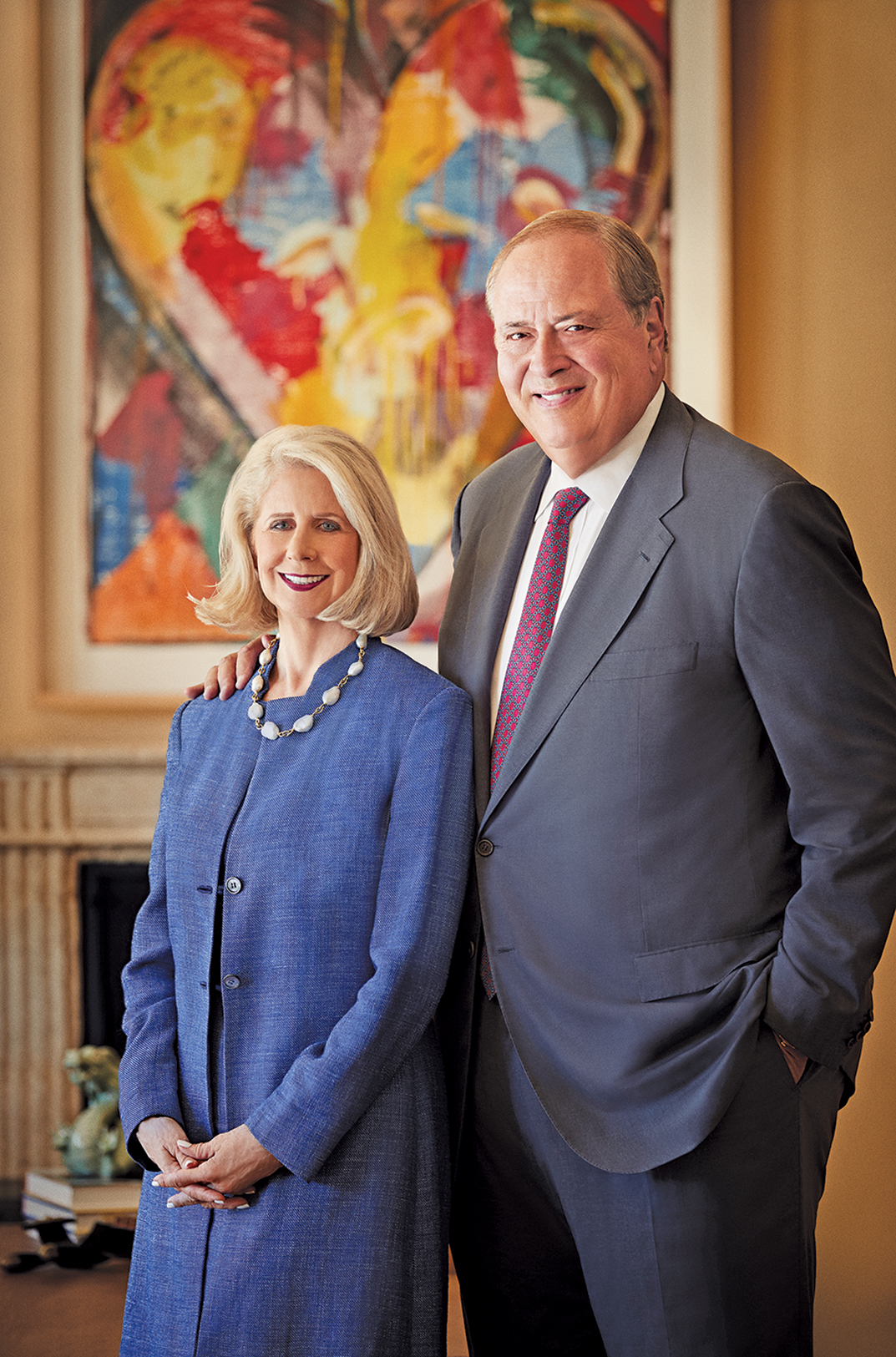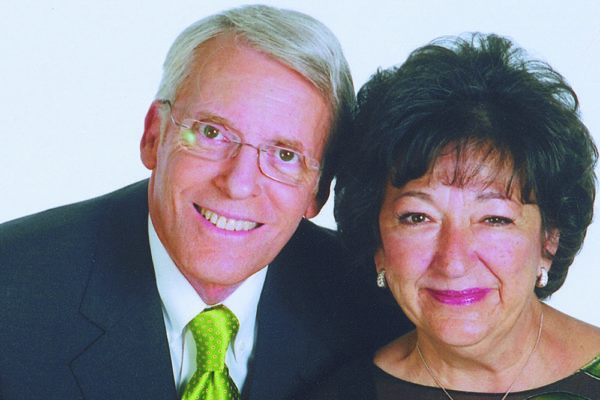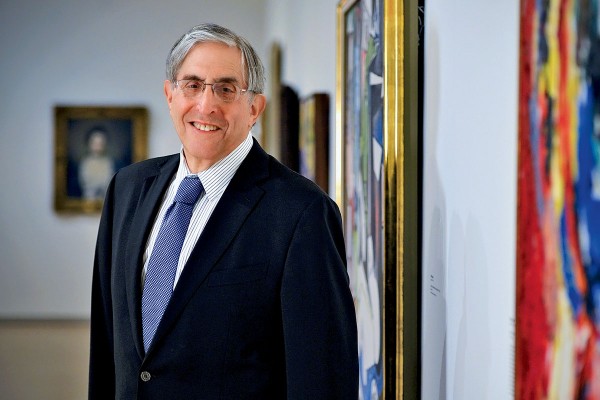
For three decades and counting, George W. Couch III’s life has been entwined with Washington University and the School of Medicine. It was his younger brother Gregory who led the way. When George and Gregory Couch were living in St. Louis, Gregory developed schizophrenia and was treated by a Washington University physician.
“His dream was to be a doctor and go to med school,” Couch says, “but he passed away quite suddenly in 1986. He was 31 years old. He was a wonderful person, very intelligent.”
Having witnessed his brother’s suffering has inspired George Couch and his wife, Debra, along with the entire Couch family, to focus their philanthropy on alleviating human suffering. Within months of Gregory’s passing, Couch, his mother and his brother Geoff decided to endow a professorship at the School of Medicine — the Gregory B. Couch Professorship in Psychiatry. The Couch Professorship is currently held by Deanna Barch, professor and chair of the Department of Psychological and Brain Sciences in Arts & Sciences and professor of radiology in the School of Medicine, as well as a nationally recognized expert in cognitive and language deficits in disorders such as schizophrenia.
“Gregory really is the inspiration,” Couch says. “He’s the thread that started my involvement with the university, with the med school.” Over time, Couch continues, “my relationship with the university grew and grew until it became one of the most important relationships in my life.”
Serving the community
George and Debra Couch also have been active in the communities near their home in California’s Monterey Peninsula. George, who is founder, chairman, president and chief executive officer of Couch Distributing Company Inc. in Watsonville, California, has served as a trustee of the Community Hospital of the Monterey Peninsula and of the Montage Health Foundation and serves on the board of the Panetta Institute for Public Policy at Cal State Monterey Bay. He also has been a director of the Santa Cruz Society for the Prevention of Cruelty to Animals — a cause near and dear to Debra’s heart.
“I’m a very big rescue-animal person,” Debra says. She volunteers for an organization called Peace of Mind Dog Rescue, which helps older dogs whose senior owners can no longer take care of them. Over 10 years, the operation has placed more than 800 dogs in permanent homes. And the Couches walk the talk: They have four shelter dogs of their own.
Debra, who owns and operates the Debra C designer clothing boutique in Carmel, California, also has long been active with SHARE Inc., a Los Angeles–based organization that raises funds for children with special needs. “We raise money for children in need, children with severe disabilities, all under the poverty line.”
“I’m very proud of her for this,” George adds.
‘Unbelievable learning experience’
Shortly after George Couch and his family established the Gregory B. Couch Professorship, Couch was invited to join the School of Medicine National Council, which he calls “an unbelievable learning experience for me.” Over time, he developed a “great relationship” with Larry Shapiro, MD, former executive vice chancellor for medical affairs and former dean of the school, and he says, “I think the world of” David H. Perlmutter, MD, who succeeded Shapiro.
Couch says that, as a business person, some of the medical content of the meetings “floats over my head.” However, he says, “I follow along and get the general drift. I have heard enough presentations and asked enough questions that I can say, ‘Oh, I remember that. This must be where it connects.’”
Couch also has served as a Washington University trustee since 2006. “It has given me the opportunity to be involved in doing things for the betterment of St. Louis, for the country and even internationally,” he says. The university honored him in 1990 with the Robert S. Brookings Award for his outstanding commitment and exceptional generosity.
As a member of the med school’s national council, Couch says, “It has been a privilege to be exposed to renowned faculty members who are making such a difference in the health of people around the world. As Debra and I began to think about our own legacy, we knew we wanted to help advance their work.”
The couple came to St. Louis and toured several centers focused on personalized medicine. Seeing the research firsthand, Debra says, “really made a difference for me.”
As a result of that visit, the Couches made a $10 million commitment in the summer of 2017 to support personalized medicine — one of the School of Medicine’s highest priorities and one that will advance the scientists’ work so that it “might just mitigate some suffering,” George says.
In recognition of the Couches’ generosity, the university named the newest research building at the Washington University Medical Center the Debra and George Couch III Biomedical Research Building. The couple was honored during a formal dedication ceremony on Oct. 6, 2017.
Dean Perlmutter designated the new fund to support the university’s Genome Engineering and Induced Pluripotent Stem Cell Center (GEiC). The center is a valuable resource for researchers with its latest genome-editing technologies, such as CRISPR-Cas9, and reprogramming of stem cells.
The GEiC — led by Jeffrey Milbrandt, MD ’78, the James S. McDonnell Professor of Genetics and head of the James S. McDonnell Department of Genetics — is part of a network of centers advancing the university’s leadership in precision medicine, most of them housed in the Couch Building. Milbrandt is a renowned geneticist who focuses on advancing the tools and techniques of gene editing to develop new therapies for patients. The aim is to change the way disease is diagnosed and treated.
“We feel really blessed to have some resources to donate and to find something so important, and so near and dear to us, to support,” George says. “Bolstering any advances that scientists might discover to mitigate human suffering is a loftier goal than I ever dreamed I could have a tiny part in.”
Mary Ellen Benson is a writer in Development Communications and former executive editor of Washington magazine.


